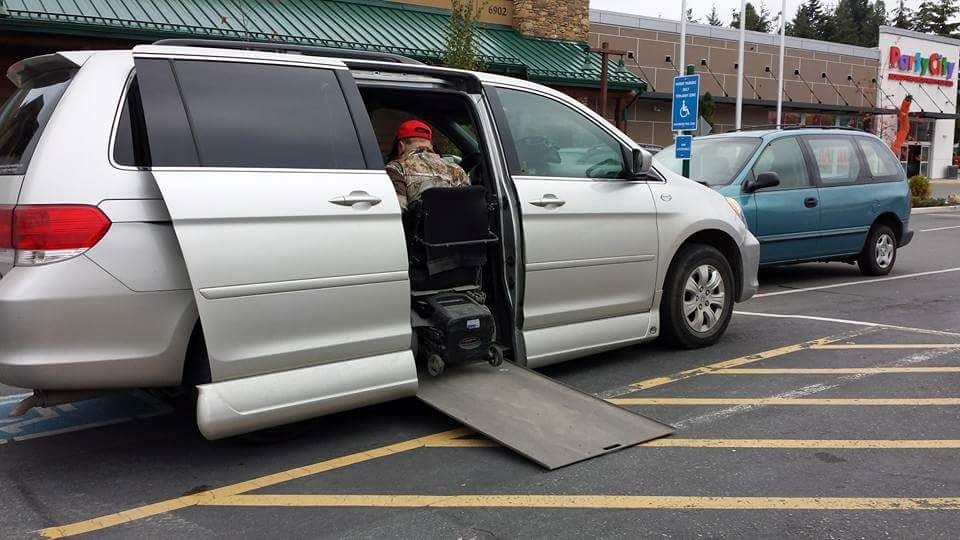One thing that frustrates Vincent Miele, of the Richmond Centre for Disability (RCD), when he looks for parking is when he sees someone in van-accessible spots simply walking away.
“It really frustrates me when all they have to do in some cases is park two or three spots over in a normal spot — it’s not much further to walk,” he said.
These wider spots are a “necessity” for some, said Miele who is a wheelchair user himself.
Those who use wheelchairs, be it manual or motorized, often need more room around their cars to deploy sideloading ramps as well as to navigate around the car to get on and off. Sometimes, these wider spots could be taken up by those who need accessible parking for a different reason.
That is not to say that only wheelchair users need a wider spot, said Miele, as they are also a necessity for people who use leg braces and walkers.
Although the city of Richmond has been working towards implementing and increasing wider spots for those who need them, the issue remains.
“I know that Lansdowne mall has tons of accessible parking spots… They’ve got spots that are so-called accessible, but they’re not really because there isn’t that hash mark (used to indicate extra width) in between two spots,” he said.
Apart from Lansdowne, Miele has also experienced similar issues at malls, big and small, across the city.
Readers of the Richmond News have also been noticing accessible parking spots being misused, either by misplaced bins or by vehicles that are not displaying the proper permits, especially in Steveston where demand for such spots has increased since Good Co. opened last month.
A vehicle without a permit issued by SPARC BC that parks in an accessible parking spot on a public lot might get fined by bylaw officers for failure to display a permit, said city spokesperson Kim Decker.
However, according to Decker, the city does not have a fine for vehicles with SPARC BC permits that misuse the spots.
“For any misuse of a permit holder, we would report it to SPARC BC or Richmond Centre for Disability (the permit number or plate number.) We have done this in the past,” said Decker.
Property owners with tow permits can also enforce parking bylaws privately, she added.
Apart from enforcing parking bylaws, Miele hopes that raising public awareness would also help the issue.
“Respect who these accessible spaces are meant for. If you can manage in a regular spot, use it. Just because you’ve got a placard doesn’t mean you have to park in an accessible spot.
“If we tried to drive that home to the general public, to the individuals that have placards, maybe they’ll remember it when they’re going to pull into a spot,” he said.



